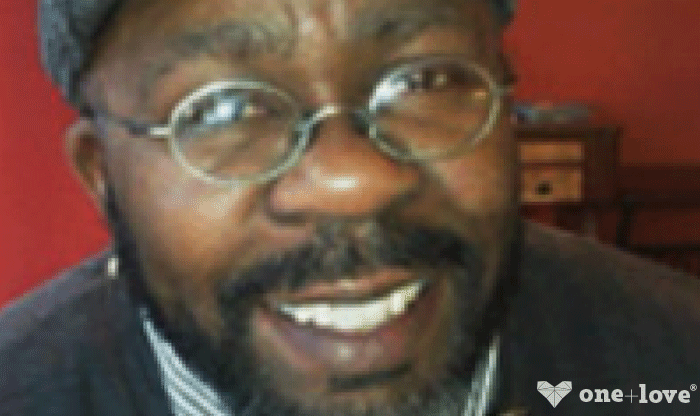
Check-in w/ Rev. Louis Mitchell
Rev. Louis Mitchell recently spoke at the DC Department of Transportation about trans* safety in public space, so One+Love wanted to catch up with this busy activist to hear more of his insights. He is the Engagement Coordinator for the Interfaith Working Group, a member of the National Black Justice Coalition’s Leadership Advisory Council, and a founding member of The Fellowship of Affirming Ministries’ Trans-Saints, currently serving as their East Coast Regional Minister. Rev. Mitchell was honored with the 2011 Haystack Award from the Massachusetts Conference of the UCC for his work in Social Justice and Social Ministry. He was also featured in the documentary, Still Black: A Portrait of Black Transmen. He has been doing HIV/AIDS education for 20 years, as part of his work for the Los Angeles Gay and Lesbian Community Services Center.
What does safe space look and feel like to you as a black pansexual transgender man?
Safe space is not specific to my particular descriptors, but is space that allows for people of varying identities – people who ID as LGBTQQIA, people who don’t, people who ID as disabled and people who don’t, people who are academically trained and people who aren’t, people who have a particular spiritual path, people who have many different spiritual paths and people who have none. Safe space looks like space where people can show up and be. spaces where people can be spoken with in respectful ways, honoring our differences and with a heart to find the places where we might connect. I’ve also found that many of the trans-people I know identify as no or low disclosure, i.e. “stealth”, and don’t feel safe in spaces that are identified as LGBT specific.
What do you think is getting overlooked in conversations about safe spaces and trans* folks?
I have often found that a commitment to intersectionality and understanding the ways that layered oppressions affect our access and identities. It seems especially difficult to talk about the ways that privilege plays a part in where we meet and who gets invited.
How can LGBTQ individuals build safe space within our communities?
I believe that there needs to be much more work intra-community to talk about our ism’s and issues. I also believe that each of our “sub-communities”, starting with the most visible and privileged, needs to sit and listen to those with the least visibility and access, acknowledging the overlaps and intersections possible in these communities.
Per your background as a HIV/AIDS educator, what relationship, if any, does safer sex have to sex positive politics?
As an HIV/AIDS educator, I have found that most settings, regardless of their intention to support and/or educate, have been sex negative. Our focus has been on the “do not’s” rather than supporting people in making informed decisions and supporting people in “harm reduction” thinking. It has been my experience that we have left people the options to “do right or wrong” with the notion that not having unprotected sex is right in all cases and that any alternative is wrong. I believe that this has led to a culture of dishonesty and shame and has hampered our ability to save lives and to support people who have already sero-converted in ways that honor their sexualities and sexual choices. Additionally, in my work in ministry, I’ve worked hard to frame a spiritual response to the stigma and homophobia that have long been a part of the Christian church.

Recent Comments